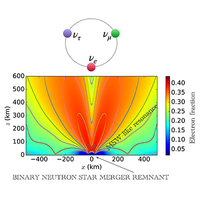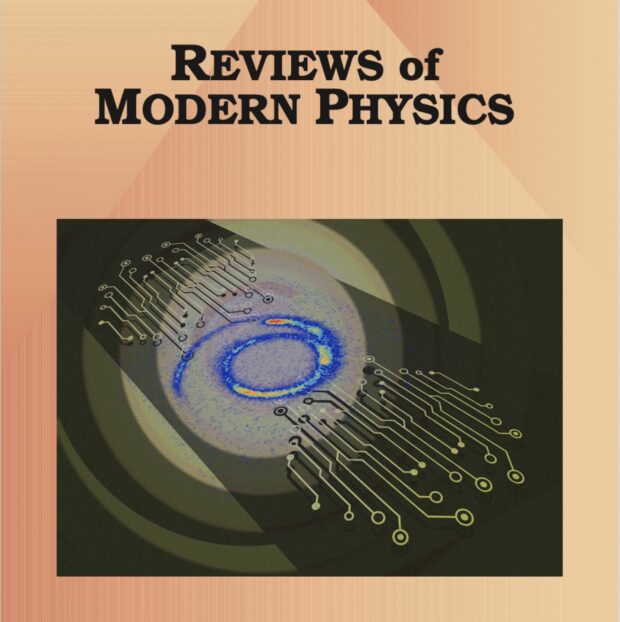Neutrinos from dense environments: Flavor mechanisms, theoretical approaches, observations, and new directions
IF 44.8
1区 物理与天体物理
Q1 PHYSICS, MULTIDISCIPLINARY
引用次数: 0
Abstract
Neutrino masses and mixings produce vacuum oscillations, an established quantum mechanical phenomenon. In matter, the Mikheev-Smirnov-Wolfenstein effect, due to neutrino interactions with the background particles, triggers resonant flavor modification. In dense environments, such as core-collapse supernovae and compact mergers, sizable neutrino-neutrino interactions, shock waves, and turbulence impact the neutrino flavor content under a variety of phenomena. Theoretical approaches of neutrino propagation range from the mean-field approximation to the full quantum kinetic equations. Interesting connections have been uncovered between weakly interacting dense neutrino gases and other many-body systems and domains, from condensed matter and nuclear physics to quantum computing. Besides the intrinsic theoretical interest, establishing how neutrinos change flavor contributes to answering the long-standing open questions of how massive stars explode and of the -process sites. It is also important for future observations of core-collapse supernova neutrinos and of the diffuse supernova neutrino background that should be discovered in the foreseeable future.

来自高密度环境的中微子:味道机制、理论方法、观测和新方向
中微子的质量和混合会产生真空振荡,这是一种公认的量子力学现象。在物质中,由于中微子与背景粒子的相互作用,米赫耶夫-斯米尔诺夫-沃尔芬斯坦效应引发了共振频率的改变。在高密度环境中,如核坍缩超新星和紧凑合并,中微子与中微子之间相当大的相互作用、冲击波和湍流会在各种现象下影响中微子的味道含量。中微子传播的理论方法从平均场近似到完整的量子动力学方程不等。弱相互作用致密中微子气体与其他多体系统和领域(从凝聚态和核物理到量子计算)之间的有趣联系已经被发现。除了内在的理论兴趣之外,确定中微子如何改变味道也有助于回答长期以来关于大质量恒星如何爆炸以及r过程场所的悬而未决的问题。这对未来观测核心坍缩超新星中微子和在可预见的未来发现的弥散超新星中微子背景也很重要。
本文章由计算机程序翻译,如有差异,请以英文原文为准。
求助全文
约1分钟内获得全文
求助全文
来源期刊

Reviews of Modern Physics
物理-物理:综合
CiteScore
76.20
自引率
0.70%
发文量
30
期刊介绍:
Reviews of Modern Physics (RMP) stands as the world's foremost physics review journal and is the most extensively cited publication within the Physical Review collection. Authored by leading international researchers, RMP's comprehensive essays offer exceptional coverage of a topic, providing context and background for contemporary research trends. Since 1929, RMP has served as an unparalleled platform for authoritative review papers across all physics domains. The journal publishes two types of essays: Reviews and Colloquia. Review articles deliver the present state of a given topic, including historical context, a critical synthesis of research progress, and a summary of potential future developments.
 求助内容:
求助内容: 应助结果提醒方式:
应助结果提醒方式:


